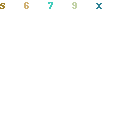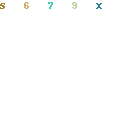You don’t need to be an expert to realise that we are a nation of sugar addicts! What was once a rare treat is now laden in most foods, digested daily and even more what was eaten as natural source now comes in many artificial forms!
So, cutting down on sugar for health reasons is priority. But guess what, you don’t have to give up sugar all together. Sugar (glucose) is an essential part of our diet as its absorption in the body provides our muscles and cells with energy. It’s the type of sugar that’s important for healthy eating and as sugar now comes in a variety of forms, it’s no wonder we’re confused when choosing the right alternative. Fruits are the perfect sugar alternative – they are natures energy source. An orange perfect for kids after exercise.
Managing your sugar consumption is not as simple as choosing ‘sugar-free’ labels as the alternative ingredients are much worst for you. Artificial sweeteners, a common substitute for sugar, are known to cause a host of symptoms from headaches, fatigue to diabetes and even cancer, so I recommend avoiding them entirely. Even though they have the lowest GI index (meaning they have a slower release of energy, maintaining stable blood sugar levels) our bodies struggle to break down the substance efficiently because it’s essentially a ‘fake food’ that our insides don’t recognise.
Not only do I recommend avoiding artificial alternatives, but I suggest being cautious of natural forms too. Fructose is derived from fruits and vegetables but despite it’s natural source, consuming too much fructose overwhelms the body’s capacity to process it. The diets of our ancestors contained only very small amounts of fructose. These days, estimates are that approx 10% of the modern diet comes from fructose – but the level of fructose is hidden in many foods today. So it really can be a battle field when it comes to removing sugar from your diet.
My recommendation when it comes to sugar is eat fruits to give you that beautiful natural sugar hit, they are designed specifically for our bodies to consume and break down.
Sweeteners that I recommend and that we use:
COCONUT NECTAR
STEVIA
Gabriel Cousens talks about stevia in his book There is a cure for diabetes that stevia is the only sweetener he recommends as it has a gylcemic index of 0 and does not raise the blood sugar (see p.294) Studies show that it may even regulate blood sugar.Unlike sugar, it does not trigger a rise in blood sugar levels. You won’t get a sudden burst of energy followed by fatigue and a need for another “fix”. Studies suggest that Stevia has a regulatory effect on the pancreas and could help stabilize blood sugar levels in the body, making it a wise choice for the people with diabetes and hypoglycemia. It increases energy, aids digestion and gastrointestinal functions and has many other health benefits. We use stevia as sweetener and only recommend using an organic source.
RAW HONEY
DATES
Fresh Medjool Dates provide the body with hours of natural energy. Dates also contain high levels of potassium; and are a rich source of Vitamin B6 – You can use dates by soaking them in water and creating a paste as an excellent source of a natural sweetener.SUGAR/ SWEETENER OPTIONS, AND THE DANGERS OF MANY.
So, when choosing a sugar substitute you have to weight up several things – GI index, where it comes from and how the body processes it’s form. The below table contains popular examples of sugars that you will come across in products, as well as natural sugars found in wholefoods.
DOWNLOAD YOUR GUIDE TO SUGAR ALTERNATIVES HERE..
Sources:
- Glycemic Index for Sweeteners, viewed 22 May 2014, <http://www.sugar-and-sweetener-guide.com/glycemic-index-for-sweeteners.html>
- http://en.wikipedia.org/wiki/Brown_rice_syrup
- Douillard J, 2000, The 3-Season Diet, Three Rivers Press, New York
- Wilson S, 2013, I Quit Sugar, Pan Macmillan Australia, Sydney
- Ainscough J, 2013, Make Peace with Your Plate, Change Your Life One Meal at a Time, Hay House Pty Ltd. Australia
- Rosenthal J, 2007, Integrative Nutrition: Feed Your Hunger for Health & Happiness, 1st ed, Integrative Nutrition Publishing, New York




















Comments